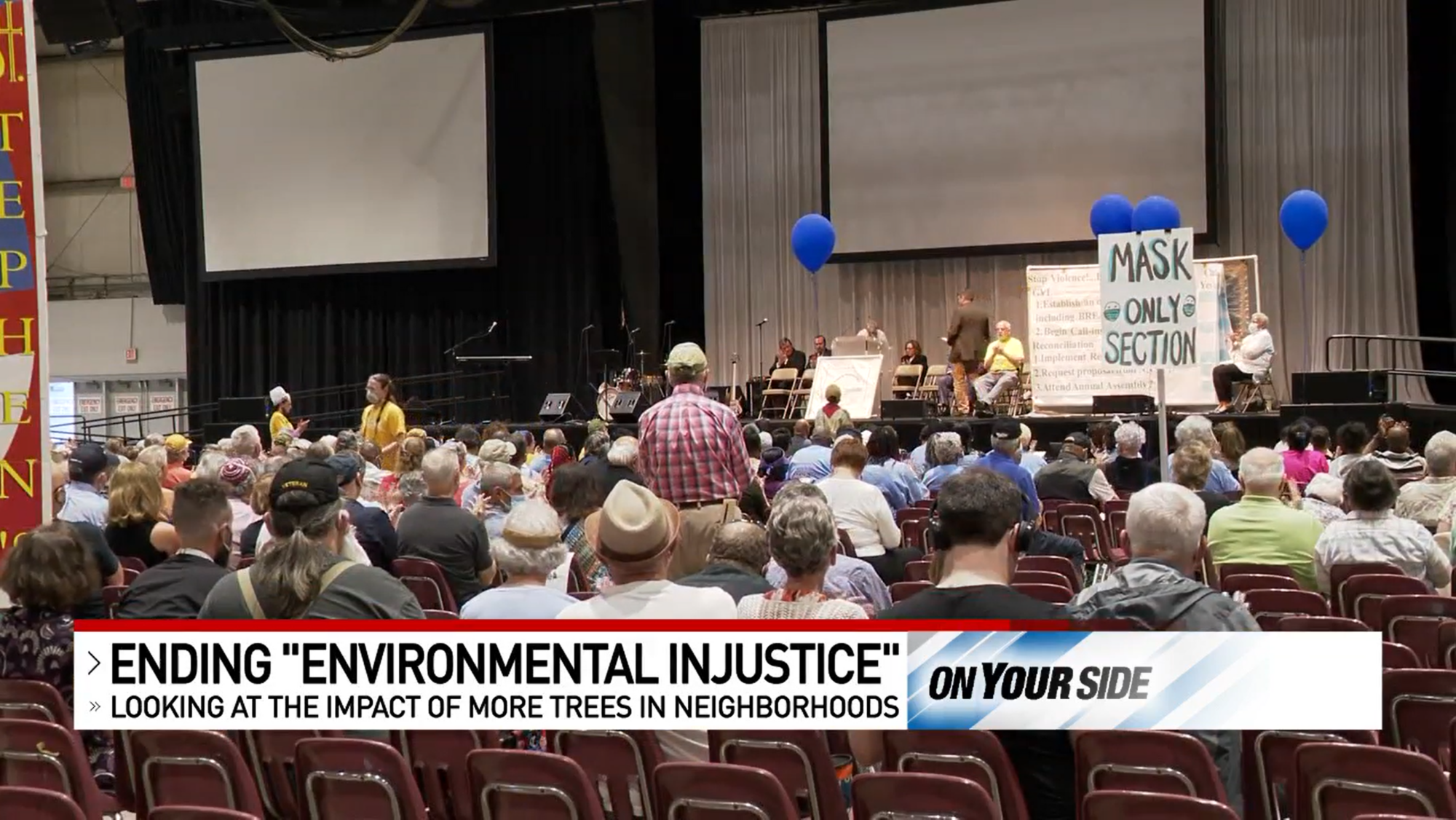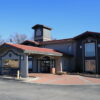By Bri Buckley, WSYX
COLUMBUS, Ohio (WSYX) — The B.R.E.A.D. organization, which stands for building responsibility, equality and dignity, is pushing the city to protect the tree canopy in Columbus.
“Everyone is affected whether they know it or not, from the perspective of clean air, increased heat islands, as well as the flooding and the resulting damage and mold that comes from that,” W.D. Smith, Church of Christ at Genessee Avenue minister of justice, said.
The group said the city is plagued with ‘environmental injustice’ with many underserved neighborhoods having fewer trees than others.
They said the tree coverage helps with air quality, lowers utility bills by providing shade in the summer and buffering the winds in the winter, and protects neighborhoods from flooding.
“Trees have a position effect on heat, they reduce the temperature by as much as two to 10 degrees,” Smith said. “Trees will absorb hundreds of gallons of water, so they can reduce flooding and trees have a positive effect on our air quality, filtering out our air .”
The tree canopy can do more than help with health and economic issues, city officials said more trees can lead to less crime, with lower quality of life in certain neighborhoods directly leading to more violent crime.
“We know that too often crime and violence affect the neighborhoods that have those lower quality of life indexes, like lower tree coverage,” Columbus City Councilmember Elizabeth Brown said.
Brown is the recreation and parks committee chair and has been working with B.R.E.A.D. on the push for environmental justice.
City council already passed a resolution supporting a new Urban Forestry Master Plan, that would increase and protect trees in the city.
The next step is to make sure that plan turns into action.
“So the more that we’re beautifying our neighborhoods, the more that we’re involving residents in that process, the more that we know our neighborhoods can be protected from bad health effects of lack of trees, but also those quality of life issues like crime, those health issues like violence,” Brown said.
Council hopes to work on specific ordinances and designate a consultant to monitor the Urban Forestry Master Plan by the end of 2022 or the beginning of 2023.






